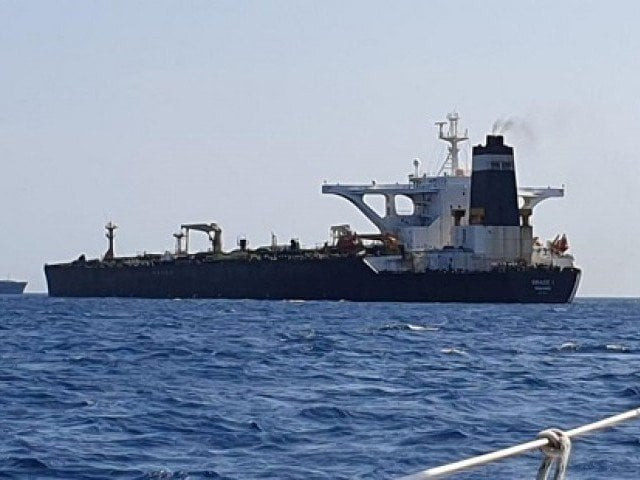Oil rises on US inventory decline but slowing economy caps gains
US crude stocks fell by nearly 11 million barrels last week: EIA

US crude stocks fell by nearly 11 million barrels last week: EIA. PHOTO:REUTERS
Brent crude futures rose $0.64 to $63.82 a barrel by 1020 GMT, after dropping 1% on Wednesday.
US West Texas Intermediate crude was up $0.51, or 0.9%, at $56.39 a barrel, having dropped 1.6% the previous session.
US crude stocks fell by nearly 11 million barrels last week, the Energy Information Administration reported on Wednesday, well above analysts' expectations for a drop of 4 million barrels.
"While that draw was influenced by temporary factors - Hurricane Barry - US crude inventories have plunged by 40 million barrels over the last six weeks, suggesting the oil market is finally rebalancing," UBS analyst Giovanni Staunovo said.
In a sign of the supply-demand balance, Brent briefly dipped into contango on Wednesday for the first time since March. Contango is a market structure in which prices for forward deliveries are higher than for prompt ones.
Oil prices have also been under pressure from concerns about global economic growth amid growing signs of harm from the US-China trade war that has rumbled on over the last year.
But the White House eased some concerns, saying top US and Chinese negotiators would meet next week to continue talks, and global equities edged up on the news.
"Despite the bullish supply-side fundamentals and geopolitics that support oil prices, it seems that the market needs a positive economic catalyst to move appreciably higher," said Harry Tchilinguirian, global oil strategist at BNP.
"If we get positive echoes next week from renewed US-China trade talks, then oil can advance noticeably higher."
A series of purchasing manager index (PMI) readings in the United States and Europe were weaker than expected.
The German PMI, tracking the manufacturing and services sectors, hit a seven-year low in July, suggesting a deteriorating growth outlook for Europe's largest economy. The fall was driven by the auto sector on poor sales to China.
Set against those worries are tensions in the Middle East following the seizure of a British-flagged tanker in the Gulf by Iranian forces last week.
Saudi Arabia, the world's top oil exporter, urged global oil buyers on Thursday to secure energy shipments passing through the Strait of Hormuz, through which about 20% of global supply is transported daily.
Britain gained initial support from France, Italy and Denmark for its plan for a European-led naval mission to ensure safe shipping in the Gulf.



















COMMENTS
Comments are moderated and generally will be posted if they are on-topic and not abusive.
For more information, please see our Comments FAQ